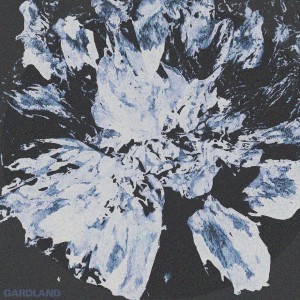You need to get to know Gardland. Since releasing their debut EP in February of this year, the techno duo have quickly become known for their throbbing, improvised live set, and are leading a small but solid movement of techno producers in Sydney with their own record label Hunter Gatherer. Ahead of their appearance at our upcoming Input event, we sat down with Mark Smith from Gardland to find out more about their production techniques and how they execute their live show.
Who and what is Gardland?
Gardland is myself and Alex Murray. We are a duo who perform improvised music on hardware instruments.
Take us through your usual gear setup for making music?
Our live set up consists of two DSI Tempests, MFB 522, Eventide Space, DSI Tetra, Jomox Moonwind, Jomox M-Base, Strymon Timeline and an iPad.
What’s your most used piece of gear in live performance? What is it about that piece of gear that makes it the most used?
Definitely the Tempests. The layout and sequencing options make for an exceptionally intuitive interface that facilitates quick and direct creation and manipulation, And the sound is great at connoting classic sonic tropes without merely emulating them.

Gardland released their debut, self-titled EP on their own label Hunter Gatherer in February.
Where does Ableton Live fit into making your music? What’s you favourite feature?
We use Ableton to organise and optimise our improvisations. It plays a big role in helping to create a more coherent piece. Personally, my favourite feature is the ability to endlessly route sends in to and out of each other.
Have you been using any of the new features in Ableton Live 9? How?
The updates in workflow are the best improvements for us as we tend to have pretty long sessions. Little things like only having to click once to insert an automation mark speed things up nicely.
Are you using many plugins? What’s a recent favourite?
We use a lot of Waves stuff; the API 2500 is a compresser we use a lot and get a lot of good results out of. A cool Ableton plug is the Max LFO – the mapping possibilities are great for non-static effects.
There’s a lot that goes into making music, in 2013 the producer is often also the engineer, performer, programmer, session player, mixing engineer etc. What part of the music making process do you enjoy the most?
Obviously the creation of music out of silence is a big kick and mixing is an addictive and demanding dark art that is equal parts enjoyment and frustration.
Do either of you play non-electronic instruments? And do you think your knowledge of other instruments and the theory that goes with it influences the way you write?
We both played drums and keys, I played guitar. We were both trained to varying extents – generally such knowledge acts as a facilitator for specific musical exlporations and allows us to communicate quickly regarding harmonic, rhythmic and timbral content.
What’s your main source of inspiration and how do you stay inspired?
Generally speaking, inspiration lives in random, unforeseen places, whether it be a Stockhausen lecture or the sound of jumbo jet flying over your house.
What’s the start to finish process for a Gardland recording, from conception to release. (pre-conceived ideas, completely improvised from the beginning etc.)
I cannot recall having preconceived ideas. Generally we improvise aimlessly while recording, listen back to what we did, pick out the best bits and re-record if needed. Once the final recordings are captured we do production in Ableton.
When do you know a track is finished?
When the proportioning of the idea correlates with the proportioning of the original idea. This may occur when a track seems ‘unfinished’, but that’s probably a good thing. There is a desire to add more elements when composing but most often this is a destructive desire.
How do you start your beats – do you synthesise drums, sequence sampled drums, program drum machines or start with a sampled loop?
We always start with raw oscillators and build sounds and beats simultaneously. No samples but a bunch of synthesis!
What’s the most valuable or resonant piece of muscial advice you can recall receiving?
To be honest, no nuggets of wisdom really stick out (apart from technical advice regarding mixing or recording techniques)… A good one is ‘don’t suck’!
Gardland went further into the techniques and tools behind their improvised live set, production techniques in Ableton Live and the ins and outs of starting their record label at Input: Industry Insights for Independent Producers on August 10 at Fbi Social. Check here for the next event.
Subscribe to our newsletter to keep up with our latest free tutorials, samples, video interviews and more to educate & inspire your music production.
Learn more about what’s on at Liveschool


